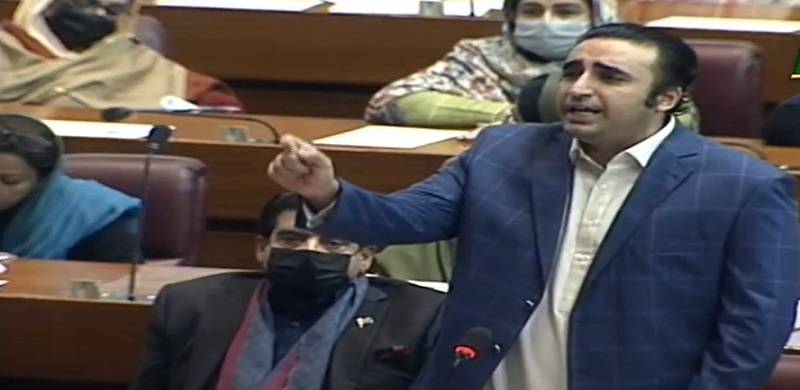
While addressing the National Assembly session, Pakistan People's Party (PPP) Chairperson Bilawal Bhutto-Zardari forewarned of 'economic slaughter' as a result of Pakistan Tehreek-e-Insaf (PTI) government's agreement with the International Monetary Fund (IMF).
He said that the mini-budget currently being tabled in the NA would unleash a 'tsunami of taxes' which would overwhelmingly burden the 'common man'.
"Because of your stubbornness and ego, you took decisions that are a robbery of the common man's pockets," the PPP leader hurled at the PTI.
"You've broken all records of negative growth, inflation, increase in poverty and unemployment rates. When we say this isn't tabdeeli (change) but destruction, we're telling the truth. You cannot be entitled to your own facts," he added.
Bilawal took special aim at the proposed taxes on technology and other IT equipment, saying that it would repress Pakistan's growth and advancement in the digital sector. He also criticized the governments taxation of solar energy systems at a time when climate change and the 'greening' of the economy has become an international concern.
"The people who talked about being leaders of youth and making Pakistan a modern state and taking us toward e-governance [...] now the youth will have to bear the burden of the tax being levied by [Prime Minister] Imran Khan on our computer, internet, mobiles and phone calls," he claimed.
He said that the mini-budget currently being tabled in the NA would unleash a 'tsunami of taxes' which would overwhelmingly burden the 'common man'.
"Because of your stubbornness and ego, you took decisions that are a robbery of the common man's pockets," the PPP leader hurled at the PTI.
"You've broken all records of negative growth, inflation, increase in poverty and unemployment rates. When we say this isn't tabdeeli (change) but destruction, we're telling the truth. You cannot be entitled to your own facts," he added.
Bilawal took special aim at the proposed taxes on technology and other IT equipment, saying that it would repress Pakistan's growth and advancement in the digital sector. He also criticized the governments taxation of solar energy systems at a time when climate change and the 'greening' of the economy has become an international concern.
"The people who talked about being leaders of youth and making Pakistan a modern state and taking us toward e-governance [...] now the youth will have to bear the burden of the tax being levied by [Prime Minister] Imran Khan on our computer, internet, mobiles and phone calls," he claimed.

